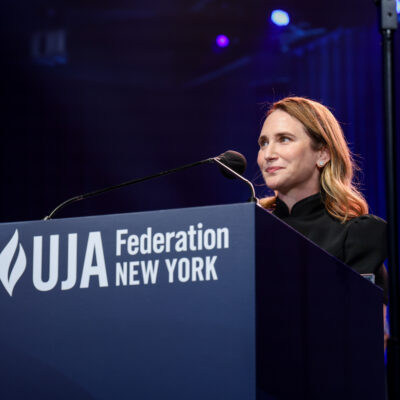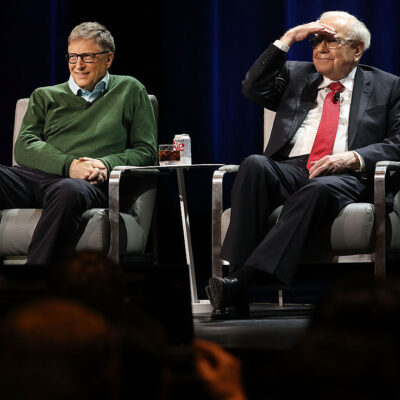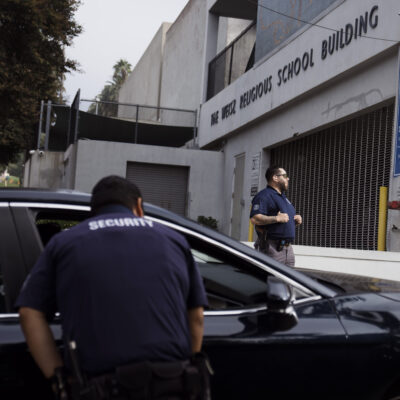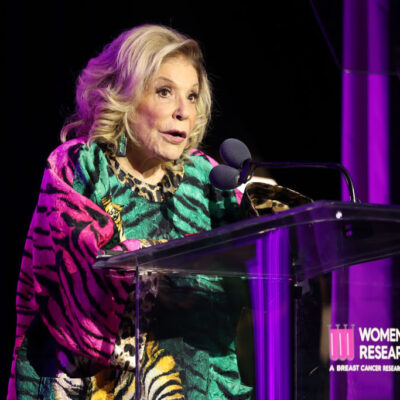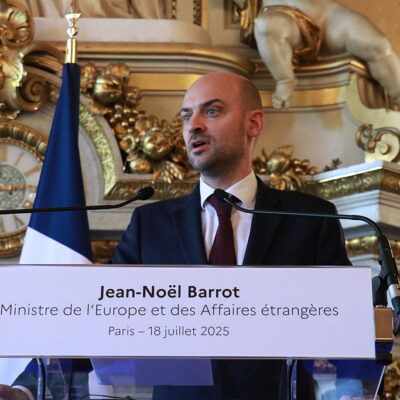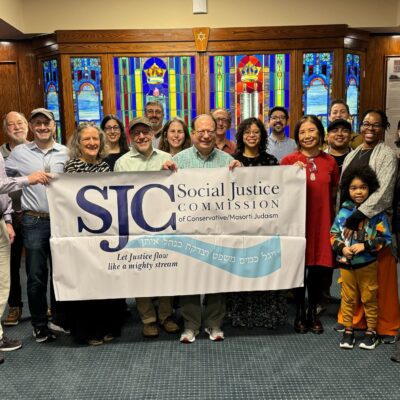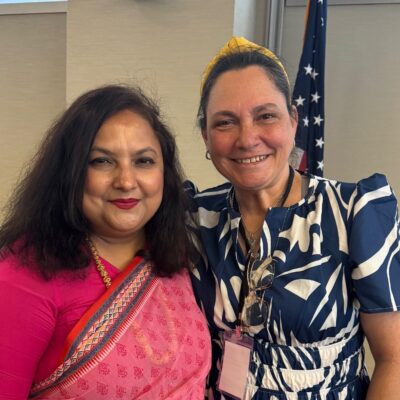SURVEY SAYS
‘Old enough for a driver’s permit’: Progressive group assesses the unfulfilled promise of the Giving Pledge
Institute for Policy Studies finds that only one living signatory has abided by the voluntary agreement to donate at least half their wealth to charity
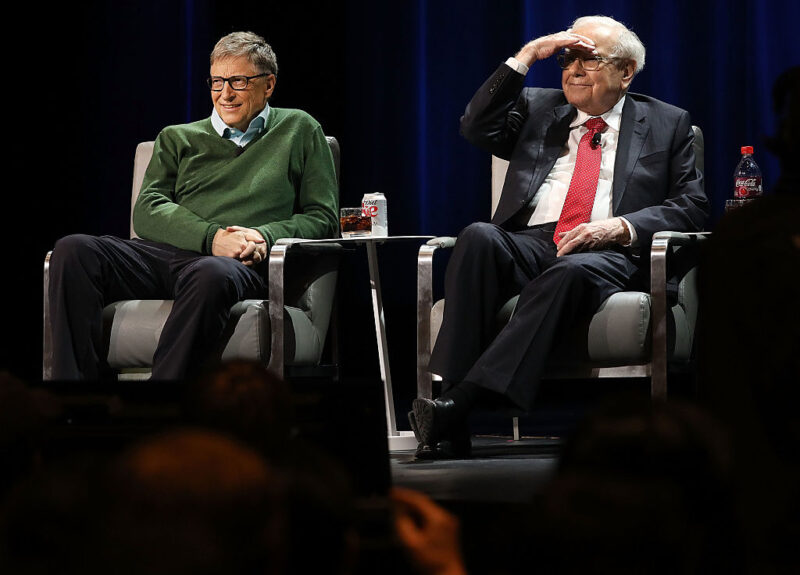
Spencer Platt/Getty Images
Bill Gates and Warren Buffett speak with journalist Charlie Rose at an event organized by Columbia Business School on Jan. 27, 2017 in New York City.
As it marks its 15th anniversary, the Giving Pledge — billionaires’ voluntary agreement to donate the bulk of their fortunes to charity — has not yielded the results that its founders hoped, according to a new study by the Washington-based Institute for Policy Studies, a think tank that is generally critical of the government policies that have enabled the existence of the ultra-wealthy.
The report, “The Giving Pledge at 15,” surveys the signatories of the pledge, both the original cohort of 57 individuals, couples and families, and the 199 who have since joined, documenting how many have so far met the requirements of giving away the majority of their wealth. This include several prominent Jewish figures, including Mark Zuckerberg, Dustin Moskovitz, Bill Ackman, Jim Simons, Henry Samueli, Jeffrey Skoll, David Rubenstein, Mark Pincus, Bernie Marcus and Laura and John Arnold, among others.
The authors found that few signers have met the goal, which they credit not to a refusal to donate but to the far more rapid growth of the donors’ fortunes.
Bella DeVaan, one of the four authors of the report and associate director of the think tank’s Charity Reform Initiative, told eJewishPhilanthropy that IPS decided to examine the Giving Pledge more closely in light of both the 15-year milestone and the recent actions of its co-founder, Bill Gates, who announced in May that he planned to donate 99% of his $200 billion fortune.
“We evaluate the Giving Pledge every couple of years in our biennial Gilded Giving reports, but I think the reason the Giving Pledge this year feels so important is because of what Bill Gates himself has done,” DeVaan said. “We felt that the relationship between philanthropy, inequality and democracy in this country is at a boiling point,” she said. “The Giving Pledge is now old enough for a driver’s permit, we’ve been joking. And we think that means that there’s enough of a body of evidence to really evaluate if it’s working.”
“Unfortunately, what we found is that it’s really hard not to just keep getting wealthier and to have your giving keep pace with the growth of your wealth if you’re an American billionaire and a Giving Pledge signatory,” she said.
The authors found that the pledge, if even partially fulfilled, could have profound consequences on national charitable giving levels.
“If all of the living 2010 Pledgers who are still billionaires fulfilled their pledges today, they would direct an additional $367 billion to charity. This is just shy of the $392 billion given all by individuals in the U.S. in 2024,” the authors noted.
“The Giving Pledge is voluntary. We understand why there isn’t a sort of rigorous tracking system, why it’s not an oversight body. But we do think to retain its credibility, the pledgers need to really think about how they’re actually going to be making good on the promise,” DeVaan said. “When only eight of the 22 deceased pledgers actually fulfilled the pledge upon their death, and a lot of those gifts went to foundations that will involve some kind of family control — is that truly fulfilling what we need the Giving Pledge to be?”
In researching the philanthropic giving by Giving Pledge signatories, the researchers found that they generally do so through intermediaries, principally donor-advised funds and limited-liability corporations, both of which make it nearly impossible to track donations. “When a regular person gives to charity, they are giving directly and their gift is reaching the working charity on the ground,” DeVaan said. “Not all Giving Pledgers have the same politics or priorities, but they all disproportionately prefer to give to intermediaries that they control.”
According to the study, the median payout rate for those intermediaries is 9.2%. This is above the 5% required for foundations but generally below their growth rates, meaning these funds self-perpetuate.
“Not all of them have been growing at the same rate, but if trends hold and if wealth continues to grow and stock value continues to appreciate, these foundations are going to get bigger than their gifts are keeping pace with,” DeVaan said.
“We think that that’s an abdication of responsibility because if the public really understood how this works and how there’s this big lag time in terms of the benefit we give wealthy givers up front [in tax breaks] versus the ultimate outcome, that wouldn’t fly,” she said, noting that this was based on polling that the think tank has done on the subject.
According to DeVaan, the think tank supports fresh regulations that would increase the payout rate for foundations, require greater transparency or make tax benefits contingent upon funds reaching the public — as opposed to reaching family foundations or other vehicles.
DeVaan acknowledged that ultra-wealthy donors have legitimate reasons for not wanting to operate transparently, particularly in light of recent congressional proposals that would curtail the freedoms of 501(c)3 organizations.
“There’s no reason you wouldn’t want to operate this way in this current climate. It makes complete sense,” she said. “And no serious and meaningful regulation works if it’s going to be used to persecute perceived political enemies or be used for witch hunting or discrete partisan agendas based on whoever is in control. That’s something we’re really alarmed by. And I think that’s also really unfortunate because we need to seriously contend with the perils of concentrated power in the philanthropic sector. But that’s just not possible if regulation is going to look like it’s going after specific agenda items. The freedom to give needs to be protected, and it needs to be protected even-handedly.”
The report highlighted a number of Giving Pledge signatories who do appear to be embodying the spirit of the agreement. This included MacKenzie Scott, who has been particularly transparent in her trust-based giving, as well as Melinda French.
“There’s also Mark Benioff of Salesforce, who’s done some interesting direct gifts,” DeVaan said. “And we’re going to follow what Bill Gates does next and see if his efforts are going to be to replace state capacity in a way that is heretofore unseen based on all the USAID funding cuts.”

